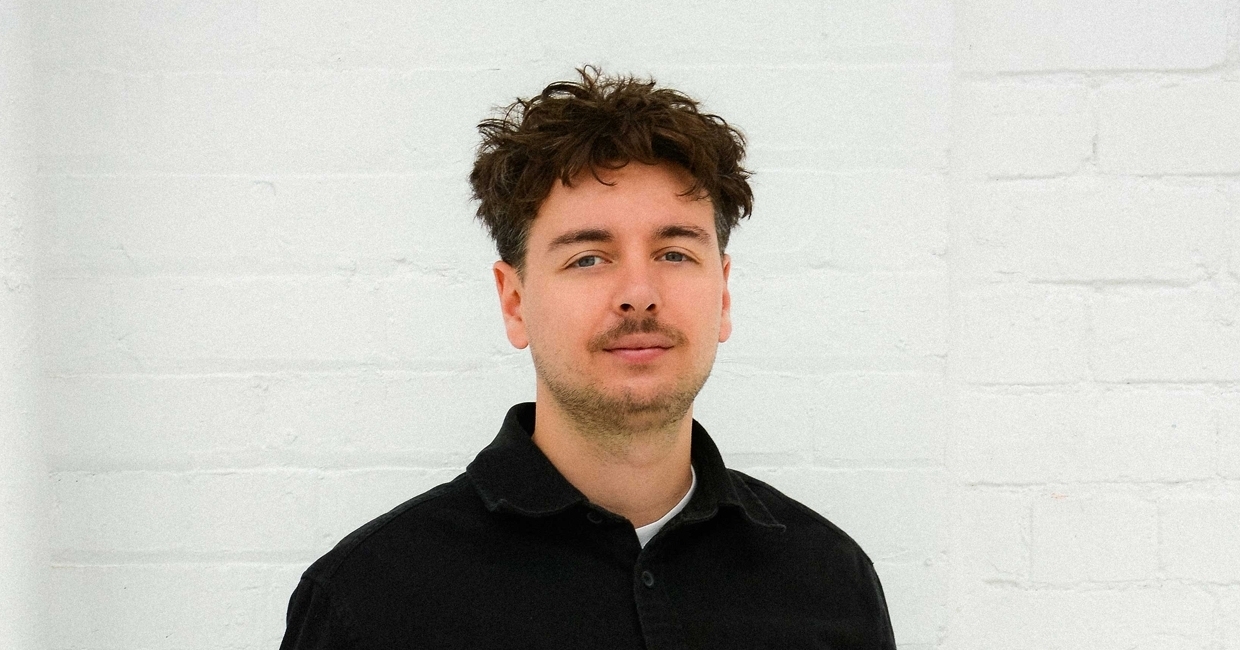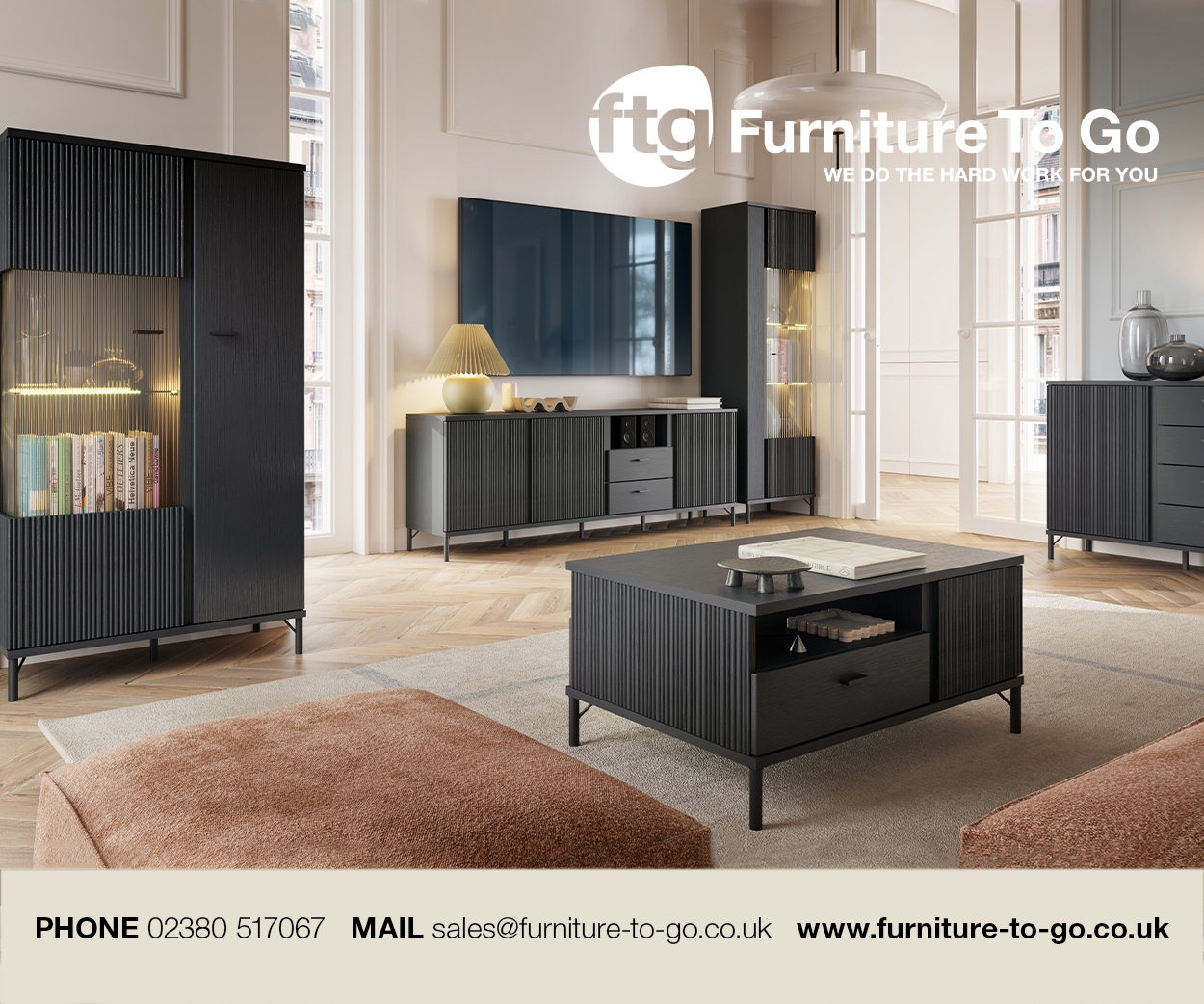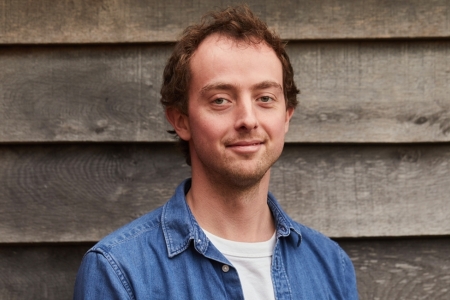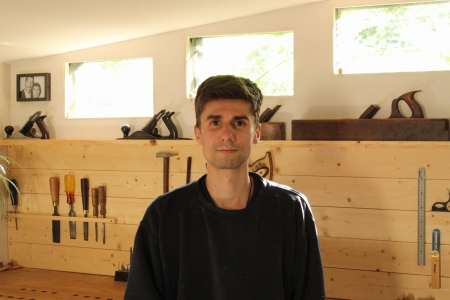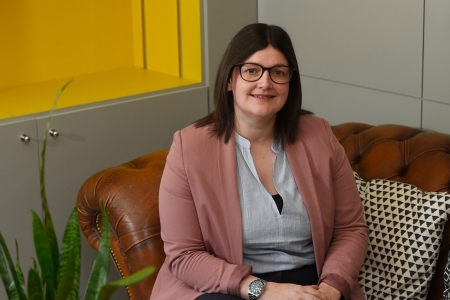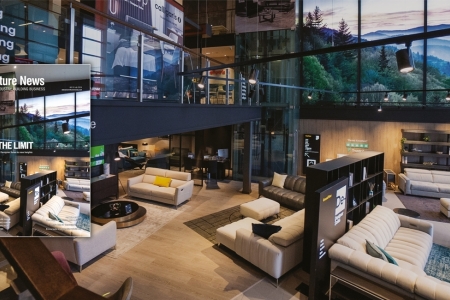To mark its 60th anniversary, The Furniture Makers’ Company looked to the future by highlighting 60 of the industry’s most promising young professionals (aged under 35) through its ‘60 for 60’ campaign. To discover how they view the trade, Furniture News is inviting these rising stars to share their stories – here, our quickfire questions go to furniture designer Will Hudson …
In one sentence, describe what you do …
I come to businesses with original ideas for furniture and homewares, and develop them into a mass-market product.
What makes you well suited to the role?
I’m from the North, which comes with the trait of getting straight to the point. This really comes through with my design work. It also means I tend to have honest conversations with people around products and design detail, I think they appreciate that. This makes it so much easier to get people to buy into my ideas, they trust in what I have to say. After all, these ideas cost thousands to develop, so they need to feel confident in my ability.
I generally start with a very rough sketch – I don’t tend to show these to my peers as they are just for me to get the idea down on paper. It’s very natural how the idea grows and develops in my head. I tend to be good at visualising 2D drawings in a 3D space in my head. This might be something to do with my dyslexia.
I guess that’s my main role as a designer – convincing people to spend money and time developing a product that’s conceived in my head.
How did you come to work in the furniture industry?
My love for furniture came when studying at Sheffield Hallam University Institute of Arts. I joined as a product designer. For the first year, I wasn’t enjoying the tech side of the designing – knowing drafting and plastic strengthening tools was all lacklustre to me. I’m from an arts background, so I was much more tuned into the overall visuals.
So, second year I moved to the sister course, which was furniture design. And I fell in love with the work of Charles and Ray Eames, Jasper Morrison, and Ronan and Erwan Bouroullec. They seemed to blur the line between art and product design, which was exactly where I wanted to be.
I emailed around 70 furniture brands and designers for placement jobs. Ocee Design got back to me and offered me a paid role – I was super lucky. Ray Hills there took me under his wing and really guided me as a young product developer. He had been in the industry all his life, and was almost ready to retire. He really passed on the love for product newness and working to solve problems. Since then I’ve worked for Modus Furniture and Habitat, both of which have well-respected legacies in the industry.
How has your career progressed since you started?
I guess it’s really been successful to this stage. Certainly, there have been a few millstone achievements. My placement really have me a confidence boost to finish my studies at Sheffield. I produced two projects, one a modular furniture piece called Thea, and the other a small selection of homewares called Cast, that celebrated metal casting. They were awarded ‘Best in Class 2019’.
Then, in that summer at New Designers, Andrew Tanner from Sainsbury’s awarded me ‘Designer of the Year’, and this really propelled my career forward. I looked at several jobs, and Modus had a junior developer position available, which really suited me, as I still had lot to learn about manufacturing and developing products.
They have an amazing roster of designers. Pearson Lloyd, Michael Young, Sir Kenneth Grange … all of whom I learned from and gained so many network contacts.
Since then, I’ve used this knowledge to design products for Habitat, really encompassing experiences from my previous job roles. I feel my best design years are ahead of me.
Where do you want to be in five years’ time?
I really want to have my own studio, and maybe a team of aspiring young designers. From the people I’ve spoken to who have their own studios, work seems to come from initialising conversations with new business – something which I’m already good at doing.
If this fails, I always wanted to teach – probably at a Sheffield university.
What’s been the biggest surprise in how the industry operates?
The industry very much revolves around people. It’s all about building a network of good people and good manufacturers that teach you something new. It’s not about how much you know, it’s about being flexible with the times and quickly adapting to the needs and wants of clients.
Another big surprise has been how small the UK furniture industry is. Everyone knows someone in this game, so it’s important to keep good relationships with people.
What does being named one of the ‘60 for 60’ mean to you?
It was a huge surprise for me, but, looking back over the start of my career, I’ve been a part of a lot of great work. Then, looking at all the amazing work the other 59 selected, I was really proud to be named a part of that amazing talent pool.
What would you say to encourage others to join the industry?
I’d love more students to consider the industry as a career.
Find out more about the ‘60 for 60’ stars here.


